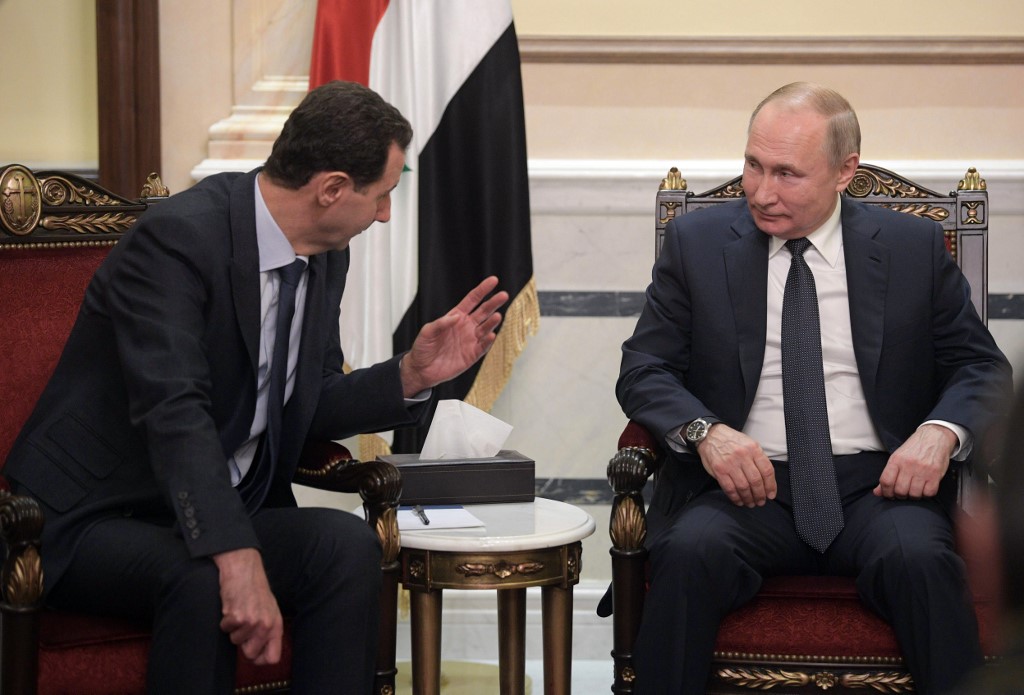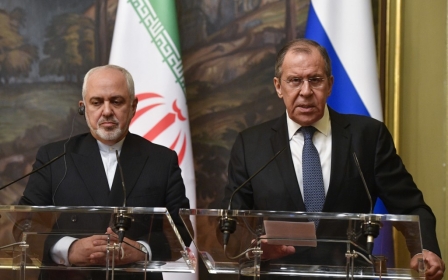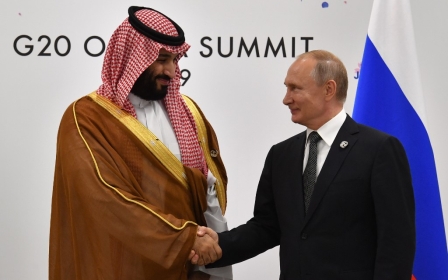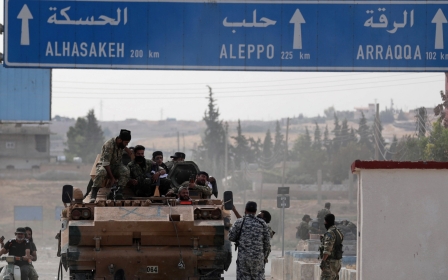What the West gets wrong about Russia's role in the Middle East

Russia’s gains in the Middle East reveal how its actual capabilities have been overlooked. Perceptions of Moscow’s role have shifted from spoiler to skilful disruptor, with a coherent and expansionist strategy that strives to find a role where the West has failed.
Once a feared superpower that positioned itself as an ideological counterweight to the West, decades of post-Soviet decline saw Russia beset by feeble economic performance, ethnic separatism and poor demographic indicators. Moscow was seen as being too preoccupied with its domestic problems, even in the wake of the Ukraine intervention.
Underestimating Russia
Former US President Barack Obama did not see the Kremlin as a direct security threat, famously deploying a zinger to challenge Mitt Romney for labelling Russia as a significant geopolitical foe. Even after the annexation of Crimea, Obama denounced Moscow as “a regional power that is threatening some of its immediate neighbours … out of weakness”.
Advances in Syria and the enhanced use of cyber-warfare to undermine Western democracies, however, highlighted these miscalculations of Russia’s actual power. Amid the worst slump in diplomatic relations since the Cold War era, Moscow once again emerged as a key geopolitical rival. The policy of strategic restraint appeared to be misguided, while Russia’s advanced weapons capabilities boosted the need for western deterrence.
Stay informed with MEE's newsletters
Sign up to get the latest alerts, insights and analysis, starting with Turkey Unpacked
The Ukraine fiasco and Obama's policy of isolation revolutionised Russia's foreign policy
A declining power and only the world’s 11th-largest economy, Moscow’s ability to punch above its weight continues to foster global uncertainty.
Once a communist foe that employed every available tool against the West, Russia is today seen as operating within the same ideological discourse in the Middle East, despite its more pragmatic and mundane goals that utilise short-term tactical approaches to squeeze in where possible and secure its limited niche.
The annexation of Crimea and the hybrid warfare in the eastern Ukraine ultimately catalysed Obama’s policy of isolation, and revolutionised Russia’s foreign policy. Despite President Vladimir Putin’s anti-US bravado, his country was hit hard by sanctions, declining oil prices and a collective Western backlash. Although boosting outreach to China seemed a balancing step, the Kremlin still placed the highest premium on its damaged relations with the West.
Geopolitical gains
While Russia’s endgame in the Middle East may still remain unclear, it is not about economic interests, although Moscow clearly benefits from massive military contracts with Egypt and multi-million dollar deals with the GCC nations. It is rather oriented towards geopolitical gains that could elevate its power status, both regionally and in the eyes of Washington and Brussels. Stepping into the Syrian civil war, alongside Tehran’s support on the ground, seemed like a good bet.
Last June, Putin noted that the Syrian campaign had exceeded his expectations. Yet, despite positioning itself as a political mediator, Russia’s actions were never about bolstering a democratic transition in Syria. Moscow’s foothold in the Latakia region, and its capacity to secure access to other regional capitals, aimed to propel Russia to the status of global power broker.
Along the way, unexpected geopolitical achievements revealed to Russia its own capacities. The Kremlin discovered opportunities to act as a tactical player with no friends or enemies, but rather partners, amid a chaotic state of affairs in the Middle East. With Syria and Libya in crisis, Saudi Arabia and Iran striving to diversify relations, and the collective trauma of the unpredictable Trump administration, Russia merely needed to show up.
Putin’s authoritarian system, which delegated decision-making to a vicious group of kleptocrats, further greased the wheels for rapid rapprochements with despotic regimes across the region. Where Western nations might have felt constrained by complicated bureaucratic procedures or domestic ethics, Russia was eager to step in, relying on its secretive and largely unaccountable foreign policy establishment.
Unabashed pragmatism
Moscow parades its unabashed pragmatism, which allows it to strike deals equally with regional adversaries. The approach embodies the Kremlin’s desire to be seen as an honest broker that is more impartial than Washington.
While the US is constrained by close ties to Saudi Arabia and Israel, Russia can deal equally with all conflicting parties. It has space to draft frameworks reflecting mutual interests, as with the recently proposed collective security mechanism in the Gulf.
Despite Russia’s currently uninterrupted access to the corridors of power in major capitals across the region, akin to what it enjoyed before Sadat’s expulsion of the Soviets from Egypt in the early 1970s, its endgame still triggers debate. Swayed by lasting legacies of the Cold War era, Moscow is now broadly perceived as a revisionist power that surgically squeezes in where the West has failed.
This notion, however, tends to distort the Kremlin’s actual capacities and embellish its actions with a coherent, expansionist strategy. In reality, Moscow appears to be a stone-cold tactical actor, filling voids across the region in order to boost its global stance and gain leverage in its broken relations with the West.
The views expressed in this article belong to the author and do not necessarily reflect the editorial policy of Middle East Eye.
Middle East Eye delivers independent and unrivalled coverage and analysis of the Middle East, North Africa and beyond. To learn more about republishing this content and the associated fees, please fill out this form. More about MEE can be found here.







